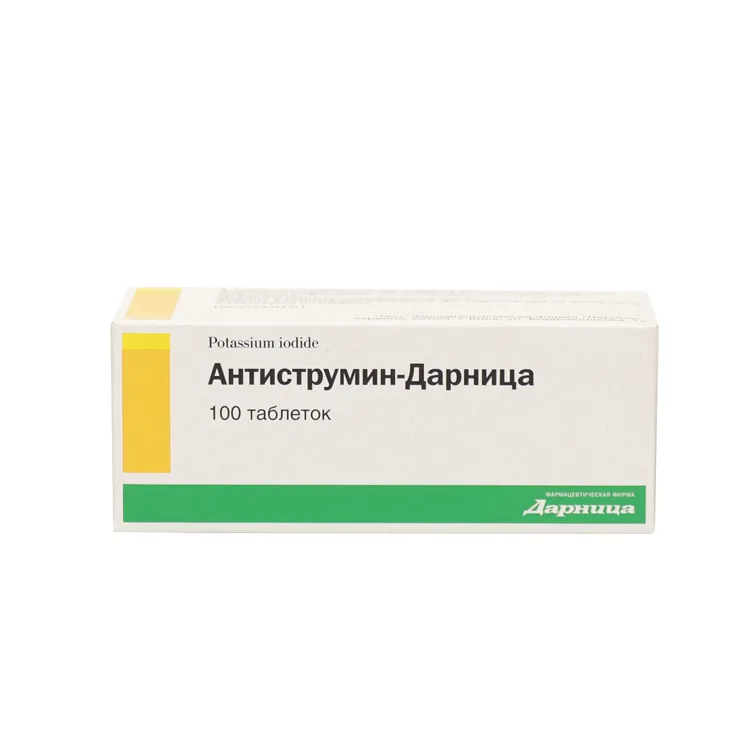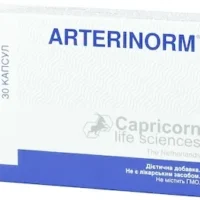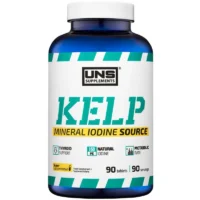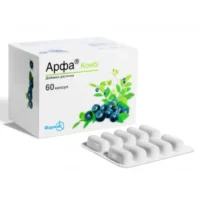Description
Antistrumin (Potassium Iodide) Tablets 1 mg. №100
Ingredients
Active ingredient: Potassium Iodide 1 mg.
Other ingredients: Microcrystalline cellulose, magnesium stearate, croscarmellose sodium.
Mechanism of Action
Potassium iodide works by providing a source of iodine, essential for the synthesis of thyroid hormones. It helps maintain proper thyroid function and prevents iodine deficiency-related conditions.
Pharmacological Properties
Potassium iodide supplementation effectively increases iodine levels in the body, reducing the risk of thyroid disorders. It is crucial for the prevention of iodine deficiency disorders such as goiter and hypothyroidism.
Indications for Use
Antistrumin tablets are indicated for the prevention of iodine deficiency disorders, including goiter and hypothyroidism.
Contraindications
Avoid Antistrumin tablets if allergic to iodine or any other ingredients. Consult a healthcare provider before use if pregnant or nursing.
Side Effects
Common side effects may include gastrointestinal disturbances. Discontinue use if any adverse reactions occur.
Usage Instructions
Adults: Take 1 tablet daily with a meal or as directed by a healthcare professional.
Children: Consult a healthcare provider for the appropriate dosage.
Benefits Compared to Analogues
Antistrumin tablets provide a reliable and convenient way to prevent iodine deficiency disorders with proven efficacy and safety profile compared to other iodine supplements.
Suitable Patient Groups
Antistrumin tablets are suitable for both adults and children under proper medical supervision. Consult a healthcare provider for individualized recommendations.
Storage and Shelf Life
Store Antistrumin tablets in a cool, dry place away from direct sunlight. Check the expiration date on the packaging and do not use after the specified date.
Packaging Description
Antistrumin tablets are packaged in a container with 100 tablets. The packaging is designed to maintain product stability and integrity.
Scientific Evidence
Potassium iodide supplementation has been extensively studied for its role in preventing iodine deficiency disorders. Research published in reputable journals has demonstrated its efficacy in reducing the prevalence of goiter and improving thyroid function.
Clinical Trials
Clinical trials have shown that potassium iodide supplementation is effective in preventing and treating iodine deficiency disorders. Studies have reported a significant reduction in goiter prevalence in populations with iodine deficiency following potassium iodide supplementation.





